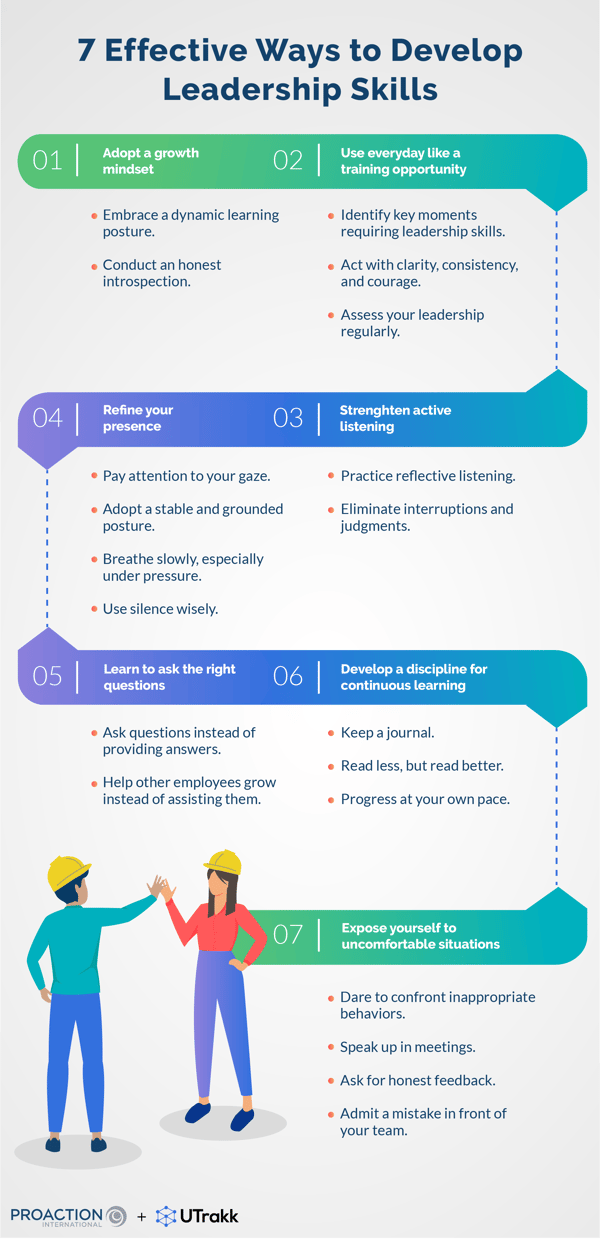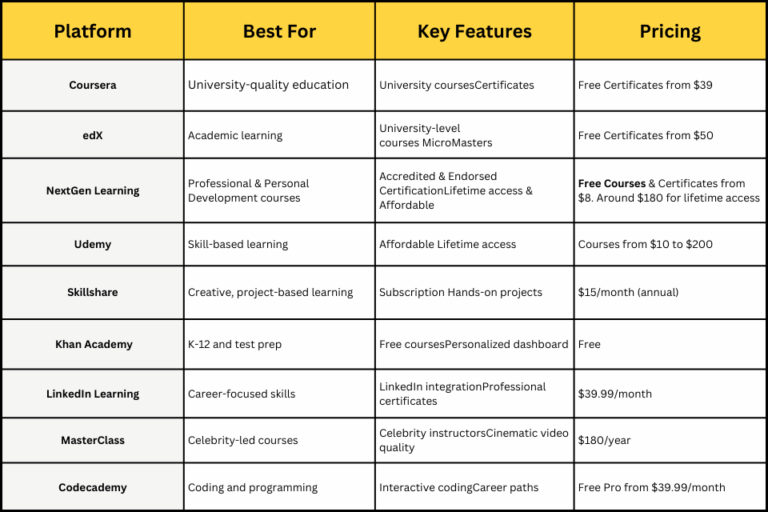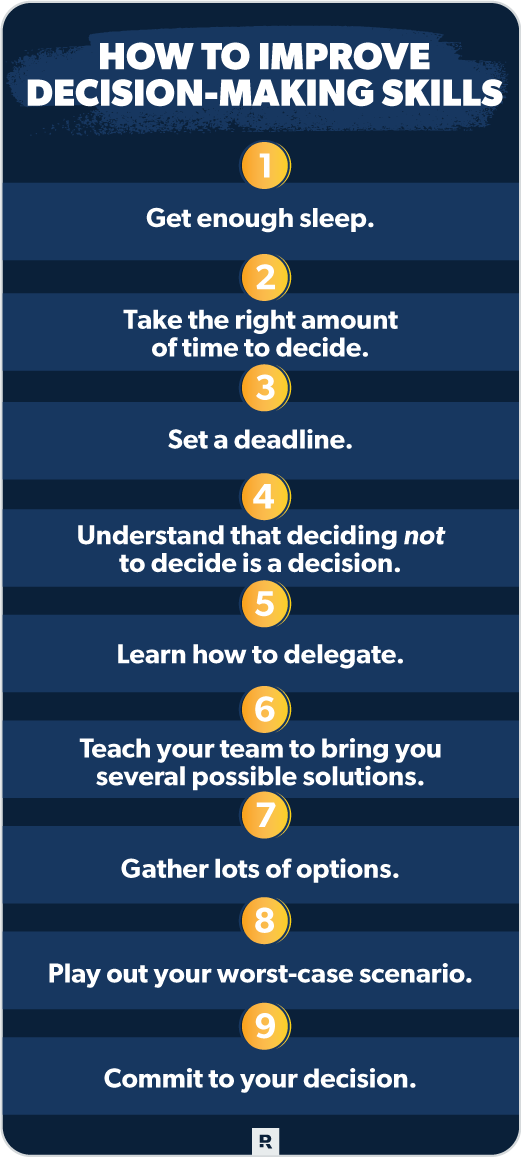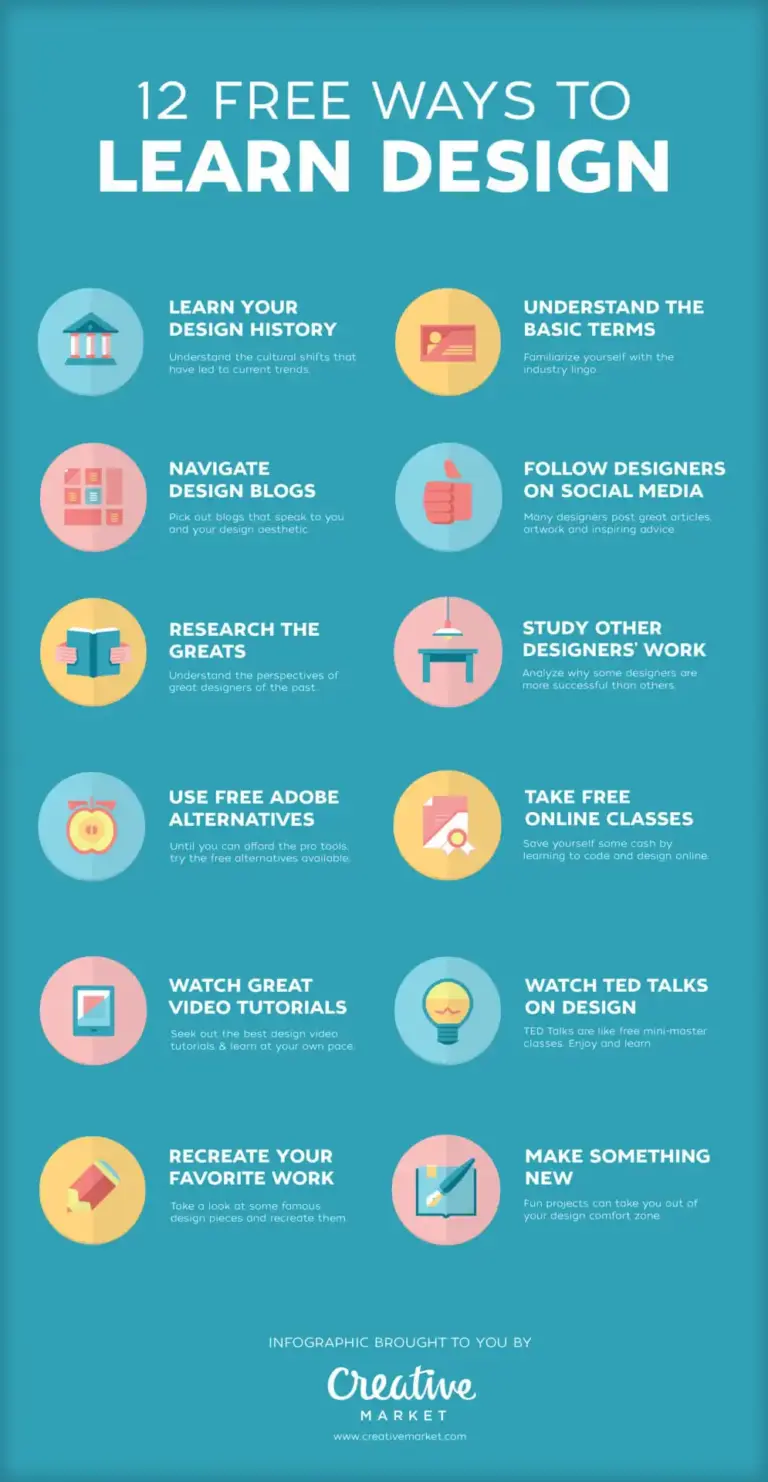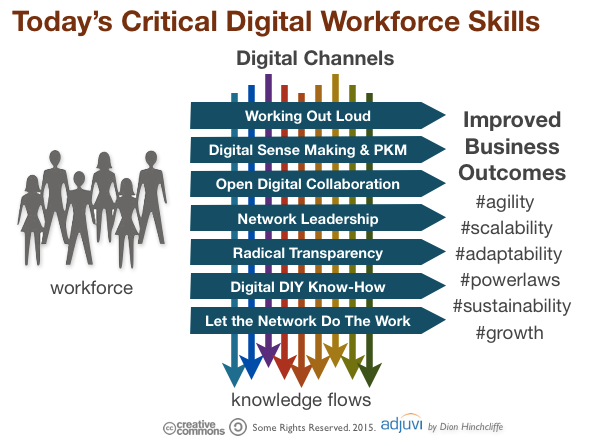Artificial Intelligence Skills Every Professional Should Learn In 2025
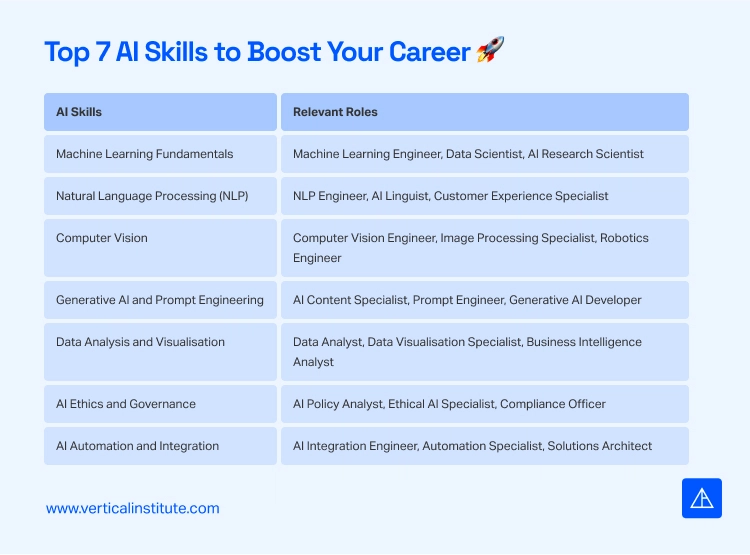
In 2025, artificial intelligence (AI) will be an integral part of every industry, reshaping the way we work. Consider this: 85% of the jobs that will exist in 2030 haven’t been invented yet, largely due to advancements in AI. As professionals, adapting to these changes is not just beneficial—it’s essential.
The most significant AI skills to master include machine learning, natural language processing, and data analysis. Machine learning, which dates back to the 1950s, is now a driving force behind predictive analytics. Additionally, natural language processing enables us to communicate seamlessly with AI, making data more accessible and actionable.

Essential AI Skills for Professionals in 2025
AI is changing fast, and professionals need to keep up. One key skill is machine learning, which helps computers learn from data. By understanding machine learning, professionals can create models that predict trends. Another important skill is natural language processing. This enables AI to understand and respond to human language effectively.
Data analysis is crucial as well. Professionals must be adept at interpreting vast amounts of data. This skill helps in making informed decisions based on patterns and insights found within the data. Additionally, cloud computing knowledge is essential. It allows for efficient storage and access to AI tools and resources.
Ethical AI practices can’t be overlooked either. It’s vital to ensure AI decisions are fair and unbiased. Knowing how to apply ethical principles to AI is becoming more important. For example, professionals should understand how to avoid algorithmic biases. This knowledge helps in building trustworthy AI systems.
Finally, continuous learning is the key to staying relevant in the AI domain. According to this post, staying updated with the latest trends and technologies is essential. Utilizing online courses, workshops, and certifications can help in this regard. Building a network of AI professionals can also provide valuable insights. These efforts contribute to a well-rounded AI skill set.
Understanding AI and Its Impact on Industries
AI is transforming various industries in incredible ways. For instance, in healthcare, AI helps doctors diagnose diseases faster. It also predicts outbreaks and personalizes treatment plans. Similarly, in finance, AI improves fraud detection and automates trading. These advancements make industries more efficient and effective.
In retail, AI enhances customer experiences. It powers chatbots that assist customers 24/7. It also uses data to recommend products based on shopping habits. AI’s impact on logistics is equally significant. It optimizes delivery routes and manages inventory efficiently.
Manufacturing benefits from AI through predictive maintenance. Machines can predict when they need repairs, preventing downtime. AI also boosts productivity by automating repetitive tasks. For example, robots can assemble products faster and more accurately. This increases overall production efficiency.
Education is not left behind either. AI personalizes learning experiences for students. It adapts lessons based on individual performance and learning styles. According to an external resource, this approach helps students grasp concepts better. Hence, AI’s role across industries continues to grow.
Machine Learning Techniques
Machine learning techniques are crucial for professionals in 2025. One popular method is supervised learning. This technique involves training an algorithm using labeled data. For example, a dataset of images with corresponding labels helps the machine recognize objects. It is widely used in image recognition.
Another essential technique is unsupervised learning. Here, the data is not labeled. The algorithm identifies patterns and relationships within the data. Clustering is a common form of unsupervised learning. It groups data points based on similarity, useful in market segmentation.
Reinforcement learning is another powerful technique. In this approach, the machine learns by trial and error. It receives rewards or penalties based on its actions. Over time, the algorithm improves by maximizing rewards. This technique is widely used in robotics and gaming.
Finally, deep learning deserves mention. It involves neural networks with multiple layers. This technique excels in tasks like speech and image recognition. Deep learning models can understand complex patterns in data. These models are the backbone of modern AI applications.
Natural Language Processing Fundamentals
Natural Language Processing (NLP) is a key area of artificial intelligence. It helps machines understand and interpret human language. One fundamental concept in NLP is tokenization. This involves breaking text into smaller units, like words or phrases. This step is essential for text analysis.
Another important concept is part-of-speech tagging. This process identifies the grammatical category of each word. For example, it labels words as nouns, verbs, or adjectives. This helps in understanding the structure of sentences. Tagging makes it easier for machines to process language.
Named Entity Recognition (NER) is another crucial NLP technique. NER identifies and classifies entities in the text. These entities could be names of people, organizations, or locations. Recognizing these elements is vital for information extraction. It makes data more meaningful and actionable.
Sentiment analysis is widely used in NLP. This technique determines the sentiment behind a text. It can identify if the text is positive, negative, or neutral. Businesses use sentiment analysis to gauge customer opinions. It provides insights into brand perception and user satisfaction.
Lastly, machine translation is an exciting aspect of NLP. It enables automatic translation between languages. For instance, Google Translate uses advanced NLP techniques. This has made communication across different languages easier. Machine translation continues to evolve and improve.
Data Analysis and Interpretation
Data analysis is the process of examining and interpreting data to find meaningful insights. It starts with data collection, where information is gathered from various sources. Once collected, the data is cleaned to remove any errors or inconsistencies. This step ensures accuracy. Clean data makes the analysis process smoother.
Data visualization plays a crucial role in analysis. Charts, graphs, and tables help in presenting data visually. These tools make it easier to understand complex information. Visualization aids in spotting trends and patterns. It helps communicate findings clearly.
Another essential aspect is statistical analysis. This involves using mathematical techniques to analyze data. Common methods include regression analysis and hypothesis testing. These techniques help in making predictions and informed decisions. Statistical analysis adds depth to data interpretation.
Software tools are also vital in data analysis. Programs like Excel, R, and Python simplify the process. They offer various features for data manipulation and visualization. Using these tools, professionals can perform complex analyses efficiently. This saves time and increases productivity.
Finally, interpretation of results is critical. It involves explaining the findings in a meaningful way. Professionals must relate the results to real-world scenarios. This helps in making data-driven decisions. Clear interpretation ensures that insights are actionable.
Application of AI Skills in Various Sectors
AI skills are widely applicable across different industries. In healthcare, AI helps in diagnosing diseases quickly. It analyzes medical images and predicts patient outcomes. AI also assists in drug discovery. This speeds up the development of new treatments.
In the finance sector, AI is used for fraud detection. It monitors transactions and identifies unusual patterns. AI also automates trading. Algorithms can make quick and accurate decisions in the stock market. This increases efficiency and reduces risks.
The retail industry benefits from AI through personalized recommendations. Online stores use AI to suggest products based on customer behavior. Chatbots also enhance customer service. They provide instant responses to customer queries. This improves user experience and satisfaction.
Manufacturing also sees significant advantages from AI. Predictive maintenance is one key application. AI predicts when machines might fail and schedules timely repairs. This reduces downtime and boosts productivity. Robotics, powered by AI, also assists in automation of assembly lines.
Education is another sector where AI is making strides. AI personalizes learning experiences for students. It adapts teaching methods based on individual progress and needs. AI-powered tools also help teachers in grading and assessing student performance. These applications make education more effective and engaging.
In agriculture, AI enhances crop management. Drones equipped with AI monitor crop health and identify issues like pests or diseases. AI also optimizes irrigation schedules. This ensures efficient water usage. These applications lead to better crop yields and sustainable farming practices.
Future Trends in Artificial Intelligence
The future of AI looks promising with several exciting trends on the horizon. One key trend is the rise of AI ethics and governance. More emphasis will be placed on creating fair and unbiased AI systems. This focus helps build trust in AI technology. Transparency in how AI decisions are made will also increase.
Another trend is the growth of AI-powered automation. Many industries will adopt robots to perform repetitive tasks. This trend reduces errors and increases efficiency. For example, self-driving cars are becoming more common. They demonstrate how AI can revolutionize transportation.
AI in healthcare will continue to advance rapidly. Personalized medicine is one area where AI shows great potential. Treatment plans will be tailored to individual patients based on their genetic makeup. This approach improves outcomes and minimizes side effects.
The integration of AI with the Internet of Things (IoT) is another significant trend. Smart homes, cities, and factories will use AI for better management and efficiency.
- Smart Thermostats that learn your preferences
- Traffic systems that optimize flow based on real-time data
- Factories that monitor machinery health continuously
These examples highlight the widespread impact of combining AI with IoT.
Last but not least, advances in natural language processing will make human-AI interactions more seamless. Voice assistants like Alexa and Siri are getting smarter every day. This trend makes technology more accessible to everyone.
Resources for Learning and Enhancing AI Skills
There are various resources available for learning AI skills. Online courses are a popular option. Websites like Coursera and edX offer courses from top universities. These platforms provide flexibility in learning. They also cover a wide range of AI topics.
Books are another valuable resource. Many books provide in-depth knowledge on AI and machine learning. Some recommended titles include “Artificial Intelligence: A Modern Approach” and “Deep Learning” by Ian Goodfellow. Reading these books can give a strong theoretical foundation. They are ideal for both beginners and advanced learners.
Forums and communities can also be very helpful. Websites like Reddit and Stack Overflow have active AI communities. Engaging with these communities allows you to ask questions and share knowledge. This interaction helps in solving problems and learning new techniques. It’s a great way to stay updated with the latest trends.
Practical experience is crucial for mastering AI skills. Participating in AI competitions on platforms like Kaggle can provide hands-on experience. These competitions challenge you to solve real-world problems. They also offer a chance to collaborate with others. This practical approach enhances understanding and application of AI concepts.
Lastly, attending workshops and conferences is beneficial. These events provide opportunities to learn from industry experts. They also offer networking possibilities. Being part of such events keeps you informed about the latest advancements. It helps in continuous skill enhancement.
Key Takeaways
- Machine learning is crucial for innovation in various industries.
- Natural language processing helps machines understand human language better.
- Data analysis allows professionals to make informed decisions.
- Ethical AI practices ensure fairness and build trust in AI technology.
- Continuous learning through courses and workshops is essential to stay updated.
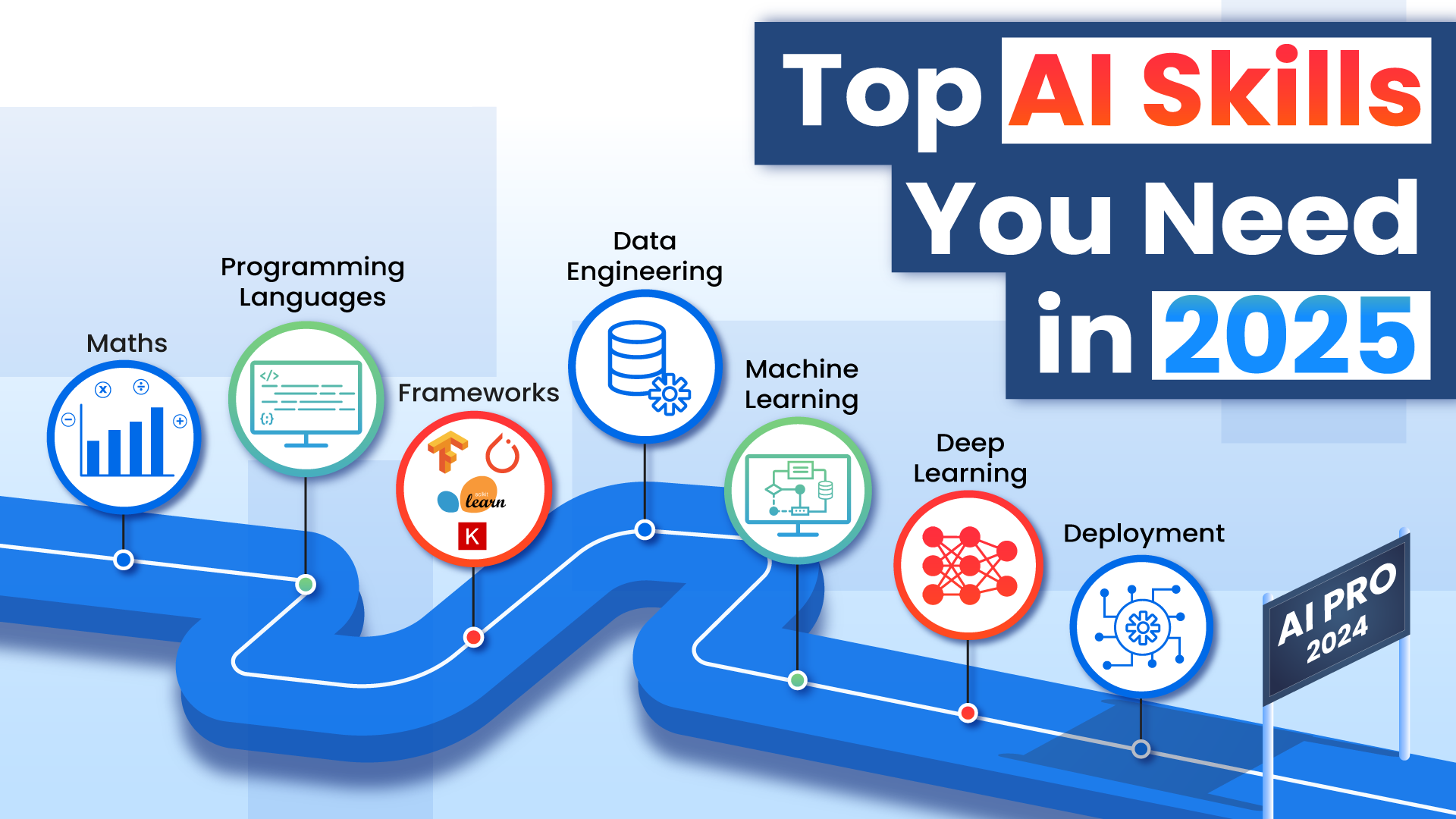
Conclusion
Looking ahead to 2025, mastering AI skills will be paramount for professionals across all fields. The integration of machine learning, natural language processing, and data analysis will drive innovation. Ethical practices in AI will enhance trust and reliability, making it a truly transformative technology.
Continuous learning remains essential in this ever-evolving domain. Engaging in courses, workshops, and practical experiences will keep professionals at the forefront of AI advancements. Embracing these skills will ensure that industries can leverage AI’s full potential, fostering growth and efficiency worldwide.


